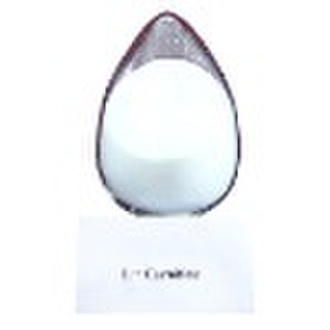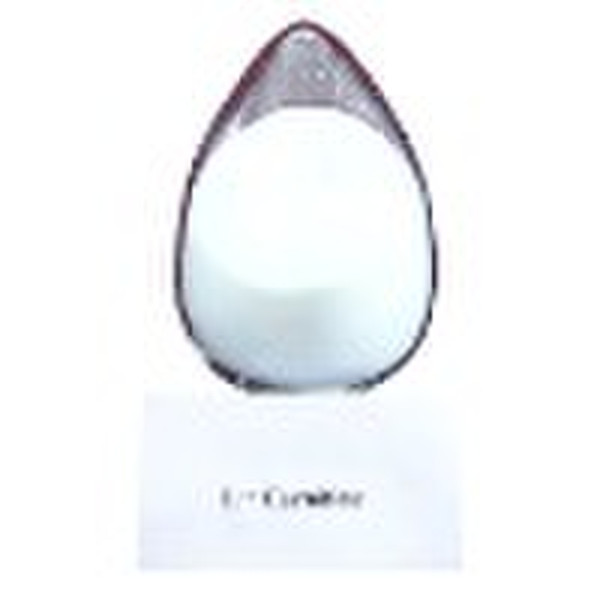Catalog
-
Catalog
- Agriculture
- Apparel
- Automobiles & Motorcycles
- Beauty & Personal Care
- Business Services
- Chemicals
- Construction & Real Estate
- Consumer Electronics
- Electrical Equipment & Supplies
- Electronic Components & Supplies
- Energy
- Environment
- Excess Inventory
- Fashion Accessories
- Food & Beverage
- Furniture
- Gifts & Crafts
- Hardware
- Health & Medical
- Home & Garden
- Home Appliances
- Lights & Lighting
- Luggage, Bags & Cases
- Machinery, Hardware & Tools
- Measurement & Analysis Instruments
- Mechanical Parts & Fabrication Services
- Minerals & Metallurgy
- Office & School Supplies
- Packaging & Printing
- Rubber & Plastics
- Security & Protection
- Service Equipment
- Shoes & Accessories
- Sports & Entertainment
- Telecommunications
- Textiles & Leather Products
- Timepieces, Jewelry, Eyewear
- Tools
- Toys & Hobbies
- Transportation
Filters
Search
97% and 50% L-Carnitine
original price: 15,00 USD
Dalian, China
Production capacity:
50000 Kilogram / Month

network dlchem
Contact person
Basic Information
L-Carnitine EP/USP CAS No.541-15-1 Other Name : Vitamin BT Chemical formula C7H15NO3+Molecular mass:162.207 g mol-1 Systematic name:(3R)-3-hydroxy-4-trimethylammonio-butanoate,inner salt Special Recommendation : We also supply the related L-Carnitine salts to our clients : L-Carnitine EP/USP CAS No.541-15-1L-Carnitine Tartrate CAS No.36687-82-8 L-Carnitine Fumarate CAS No.90471-79-7L-Carnitine Hydrochloride CAS No.6645-46-1Acetyl-L-Carnitine HCl CAS No.5080-50-2Acetyl-L-Carnitine HCl CAS No.5080-50-2L-Carnitine Feed Grade CAS No.541-15-1 Characteristic : L-Carnitine forms white crystals or a white crystalline hygroscopic powder. It has a slight characteristic odor. L-Carnitine is extremely hygroscopic and even deliquescent and it can liquefy on exposure to air.L-Carnitine melts above 200Deg.C under decomposition. L-Carnitine is highly soluble in water, in alcohol, in alkaline solutions, and in dilute mineral acids. It is practically insoluble in acetone or ethyl acetate. Specification of L-Carnitine : AppearanceWhite crystalline powder Specific rotation-29.0 -- -32.0 PH5.5--9.5Water content4.0 maxCyanamidNon DetectableChloride0.4%maxHeavy metals20 ppm maxPotassium0.2% maxAresenic2 ppm maxSodium0.1% maxResidue on ignition0.2% maxResidue Acetone0.1% maxContent97.0%--103.0% Package: 25kg Fiber Drum or as the client's request Function: Carnitine, also known as L-carnitine (levocarnitine) is a quaternary ammonium compound derived from the amino acid lysine and is responsible for the transport of fatty acids from the cytosol into the mitochondria. It is often sold as a nutritional supplement. Originally found as a growth factor for mealworms and labled Vitamin Bt. Natural carnitine is the L-stereoisomer. It can be synthesised within the body from the amino acids lysine or methionine. Vitamin C (ascorbic acid) is essential to the synthesis of carnitine. It has been speculated that during growth or pregnancy the requirement of carnitine could exceed its natural production.
Delivery terms and packaging
Packaging Detail: 25kg Fiber drum Delivery Detail: within 10 days after confirm the order
Port: Dalian,China
Payment term
Documents Against Acceptance
Documents Against Payment
Letter of credit
Telegraphic transfer
-
Payment Methods
We accept:









